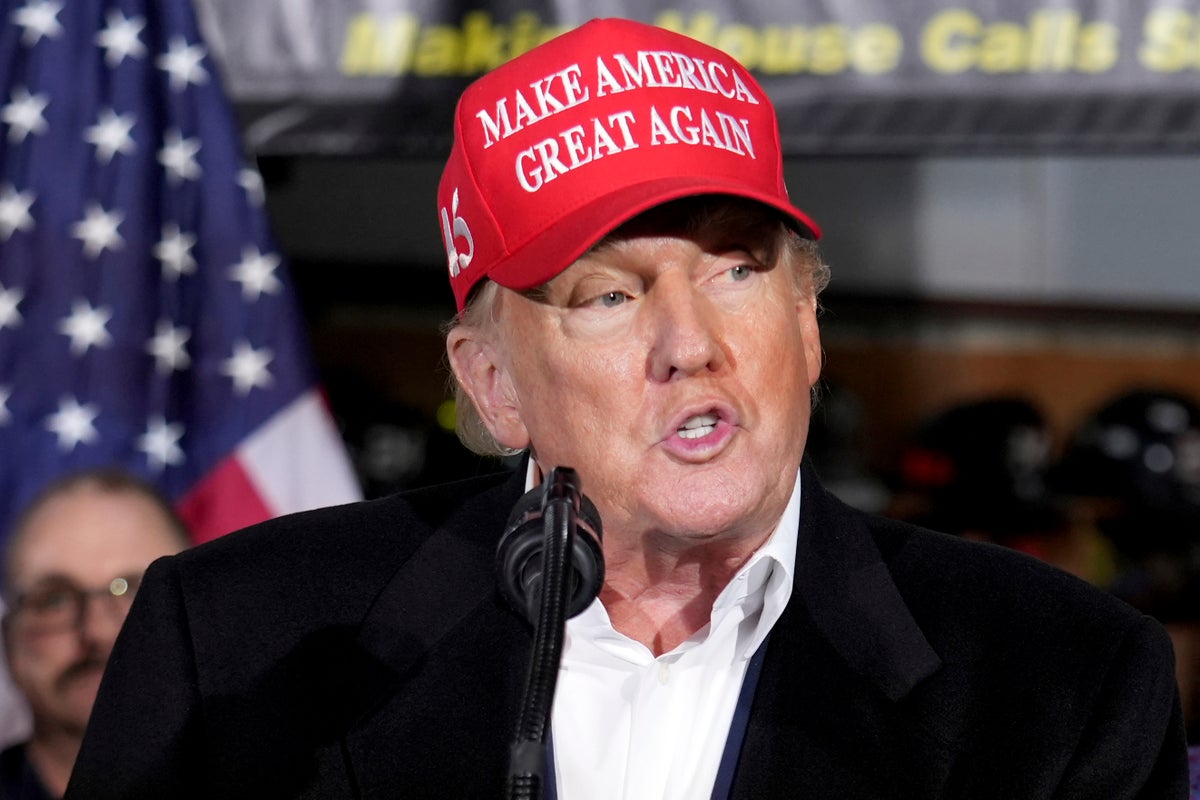
Former President Donald Trump’s lawyers in Georgia are criticizing the Fulton County investigation into potential illegal election meddling after the foreperson of the special grand jury seated to help the probe went public this week.
Emily Kohrs first spoke out in an interview published Tuesday by The Associated Press, a story that was followed by interviews in other print and television news outlets. She described some of what happened behind the closed doors of the jury room — including how some witnesses behaved, how prosecutors interacted with witnesses and how some witnesses invoked their rights not to answer certain questions.
Trump attorneys Drew Findling and Jennifer Little said that despite having concerns about the panel's proceedings from the start, they kept quiet out of respect for the grand jury process. But they said revelations offered by Kohrs this week compelled them to speak up.
“The end product is the reliability of anything that has taken place in there is completely tainted and called into question,” Findling said in an interview with the AP on Wednesday evening. He said he held “no chagrin for a 30-year-old foreperson” who was part of "a failed system.”
“She’s a product of a circus that cloaked itself as a special purpose grand jury," he said.
The special grand jury was impaneled at the request of Fulton County District Attorney Fani Willis, who is investigating whether Trump and his Republican allies committed any crimes as they tried to overturn his narrow 2020 election loss to Democrat Joe Biden in Georgia. The panel did not have the power to indict but instead could offer recommendations for Willis, a Democrat who will ultimately decide whether to seek indictments from a regular grand jury.
Findling and Little expressed concern that the special grand jury, which they said should be basing its recommendations to the district attorney on evidence and testimony presented in the jury room, was allowed to watch and read news coverage of the case and was aware of some witnesses' efforts not to testify. Kohrs said prosecutors told the jurors they could read and watch the news but urged them to keep an open mind.
Kohrs also shared numerous anecdotes from the proceedings that she found amusing and was very expressive in television interviews, sometimes laughing or making faces.
Findling and Little said the district attorney's office, which was advising the special grand jury, should have done a better job of educating the grand jurors about the solemnity of the process and the rules and limitations.
“It's not a joking matter," Findling said. "It's not a matter for giggles. It's not a matter for smiles.”
Willis’ office has declined to comment on Kohrs’ media appearances.
The Trump lawyers also said that this situation could have been avoided if the judge had instructed special grand jury members not to speak to news outlets until after the panel's full final report is made public. Several parts of the report were released last week, but Fulton County Superior Court Judge Robert McBurney said any section that recommended specific charges for specific people would remain secret for now.
In the federal system, grand jurors are prohibited from talking about what witnesses said or anything that happened in the room. But the oath taken by grand jurors in Georgia only says they cannot talk about their deliberations.
The grand jury was dissolved on Jan. 9, and McBurney told the AP that he later met with grand jurors to discuss where things stood. He said he provided them a “road map” of what they were legally allowed and not allowed to discuss publicly.
He said they could discuss what witnesses said and what is in the report but could not talk about deliberations because that's what their oath said.
Willis has said since the beginning of the investigation two years ago that she was interested in a Jan. 2, 2021, phone call in which Trump suggested to Georgia Secretary of State Brad Raffensperger, a fellow Republican, that he could “find” the votes needed to overturn Trump's loss to Biden in the state.
“All I want to do is this: I just want to find 11,780 votes, which is one more than we have,” Trump said during that call.







